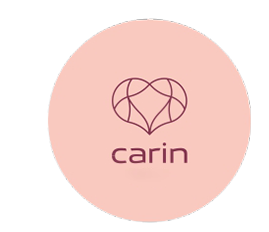Your Cart is Empty
Free and Discreet Shipping in the Netherlands! Shipping Worldwide.
Free and Discreet Shipping in the Netherlands! Shipping Worldwide.
What is postpartum depression and how to avoid it
May 05, 2022 3 min read

Although there’s no proven way to avoid postpartum depression, there are some steps that you and your family can take to reduce the risk.
Feeling a little “blue” after the arrival of your baby is completely normal. Whether this is your first, second, or fifth baby, bringing a new child into the world is going to rock the boat. You and your family are learning how to adapt to life with a newborn whilst trying to remember to eat, wash, and do everything that the baby needs. Of course you’re going to experience some stress and maybe even some feelings of sadness.
As a new mum, you are of absolute priority during this time, and it’s important that you see it that way too.
In this post, we’re going to find out exactly what postpartum depression is as well as a few ways that you can reduce the likelihood of experiencing it.
What is postpartum depression?
Experiencing mood swings, anxiety, and episodes of crying following the birth of your baby is normal. When symptoms feel more severe and last for longer than a couple of weeks, you might be experiencing postpartum depression.
Postpartum depression (or PPD) includes symptoms like:
- Severe mood swings
- Difficulty bonding with your baby
- A desire to withdraw from everyone around you
- A change in appetite - either not eating or eating a lot more than usual
- Feeling intense irritability and anger
- Lack of interest and pleasure in the things you used to enjoy
- Feeling that you’re not a good mother
- Feeling hopeless and worthless
- Restlessness and an inability to make decisions
- Thoughts of harming yourself or the baby
- Thoughts of suicide
If you are experiencing one or more of these symptoms, contact your healthcare provider immediately for support and guidance.
How to reduce the risk of postpartum depression
Although nobody can guarantee that they won’t suffer from PPD, there are a few things that you can do to reduce the chances of it happening to you.
1. Do your research
Read up about postpartum depression so that, if you recognize any signs, you’re able to tackle them as soon as possible.
2. Get lots of sleep
Get as much sleep as you can during pregnancy and postpartum. If that means that you need to invite a friend or family member over for 2 hours to watch the baby while you nap, do it! Never underestimate the power of sleep.
3. Move your body
Exercise is key in reducing the risk of PPD - moving your body releases endorphins and causes you to feel happier. Try to squeeze in at least 15 minutes of exercise every day during pregnancy and postpartum.
4. Create your support system
Decide who you want to be in your newborn bubble following the birth of your baby and talk to them about how they can support you during this time. You might ask a friend (or five!) to bring a home-cooked meal to your house or organise with a family member that they’ll come over to clean your house once a week. You might even like to look into newborn mother support groups so you know exactly where to go when you need someone outside your family to talk to.
Accept every single offer of help that you get and rest as much as you can.
You’ve got this mama!
Leave a comment
Comments will be approved before showing up.
Subscribe
Sign up to get the latest on sales, new releases and more …
